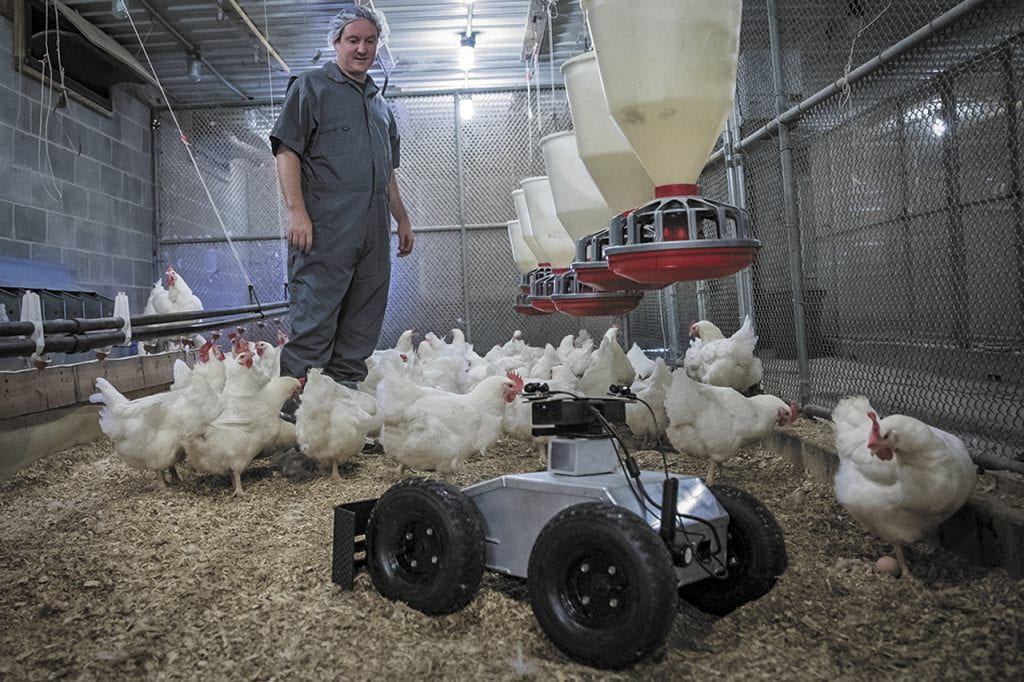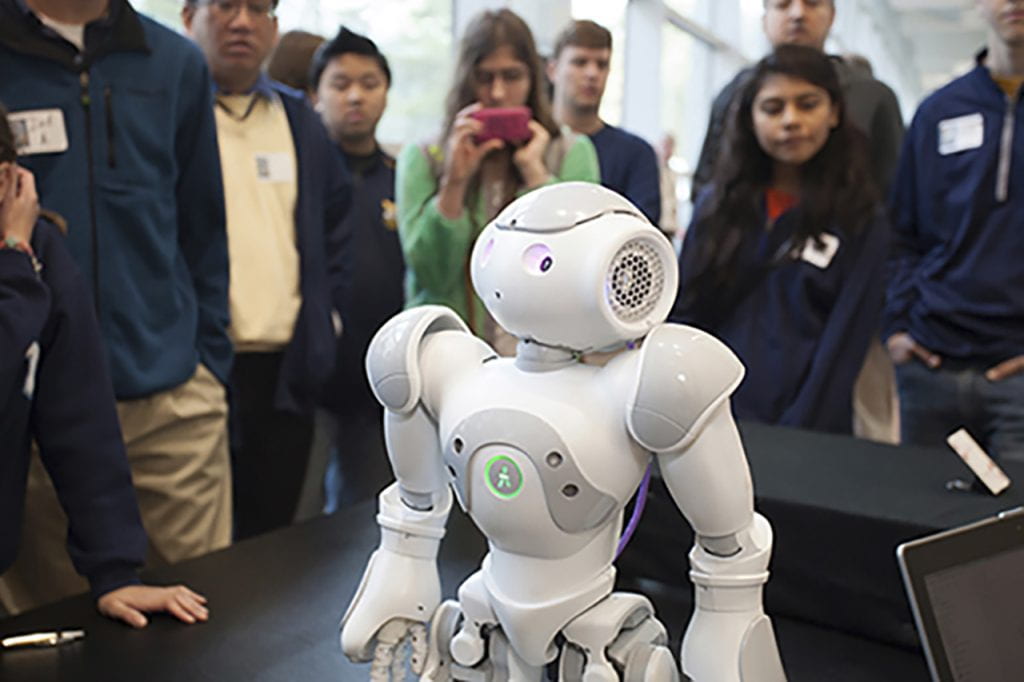Strengthening Georgia Through Innovative Technology
Agriculture | Energy | Storm Detection | STEM
The Georgia Legislature provides annual funding to the Georgia Tech Research Institute to develop and/or use innovative technologies to advance agricultural production, energy and sustainability practices, severe storms weather forecasting, and STEM education in Georgia.

Agricultural Technology Research Program
ATRP is GTRI’s oldest state-funded program. Began in 1973, the program works closely with Georgia agribusiness, especially the poultry industry, to apply and/or develop innovative engineering-based technologies that address a number of food safety, animal well-being, worker safety, and environmental sustainability challenges. Many developments have resulted in commercialized products and provided direct economic benefit to poultry processors.

Energy and Sustainability Research Group
As GTRI’s most recent state-funded initiative, ESRG conducts innovative research in the areas of energy, sustainable practices, water, and advanced materials for the benefit of Georgia’s citizens and businesses. Developments include:
• Water purification and filtration technologies
• Lower cost solar technologies
• Advanced graphene-based storage technologies, piezoelectric materials, nanomaterials, and renewable energy systems

Severe Storms Research Center
SSRC is actively engaged in developing alternative methods of detecting and forecasting severe local storms, exploring improvements to existing storm prediction and sensor technology and researching the influence of climate change on severe local storms. GTRI researchers have an array of specialized systems measuring conventional meteorological parameters (temperature, humidity, pressure, wind, etc.), atmospheric electric fields and sferics, and raindrop size distribution. The research team is also actively engaged in lightning channel detection, infrasound capture and optical spectra and gamma ray detection.

STEM@GTRI
STEM@GTRI’s purpose is to inspire, engage and impact Georgia educators and students by providing access to experts in the fields of science, technology, engineering and math. Through this interaction, we hope to improve academic performance in STEM subjects, encourage students to pursue educational and career opportunities in these areas, as well as provide materials for teachers to strengthen their STEM-related curriculum.